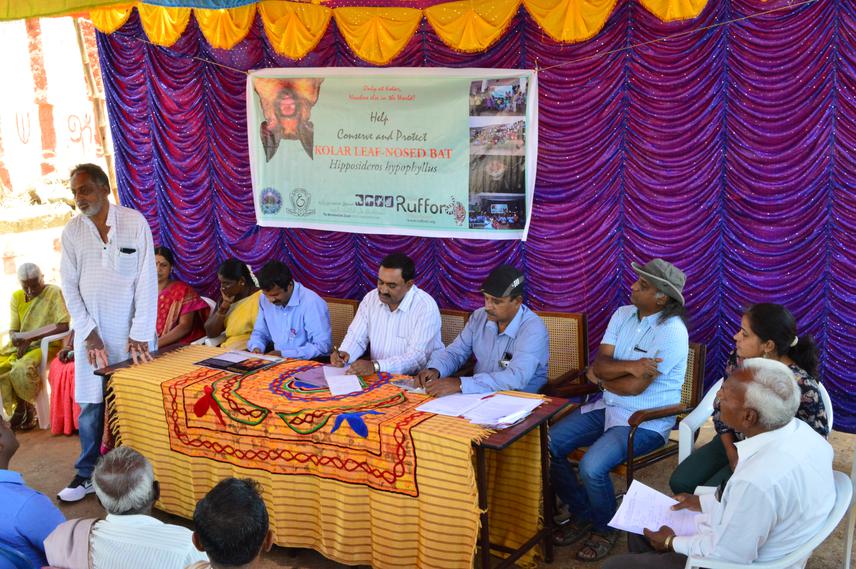Bhargavi Srinivasulu
The project aims to create awareness, stakeholder sensitization and long-term monitoring for conserving endangered endemic hipposiderid bats in Kolar.

Administration of Kolar district including the Deputy Conservator of Forests, Assistant Commissioner, Zilla Parishad Head of the Taluk.
The enigmatic Kolar leaf-nosed bat Hipposideros hypophyllus has a history of taxonomic ambiguity and since its discovery in 1994 had not been encountered. A study grant from the Mohamed Bin Zayed Species Conservation Fund resulted in the discovery of a single colony of this species and also in the detection of the presence of another endemic and endangered species - Durga Das’s leaf-nosed bat H. durgadasi. These species, along with H. fulvus and H. speoris, use the subterranean caves as diurnal roosts and feed in the vicinity. The subterranean cave roosts were found on low granitic hills that are being illegally quarried. The quarrying activities have destroyed the general habitat of the region and led to total annihilation of two other diurnal roosts. The community living in this area are unaware of the existence of these unique bats and same is the case with the Forest Department. Our observations signify the importance of long-term monitoring, establishment of community based network of individuals and sensitization of locals and forest staff towards the continued survival of the endemic endangered species and their congeners.
The present project would enable in achieving a better understanding of the current status of the endemic leaf-nosed bats in Kolar district, their distribution, population status and other threats impacting the species and their habitats. We plan to survey other similar habitats in Kolar district to detect the presence of other roosts through active roost checks and acoustic surveys. This will help in understanding the true range of these species and also help in gathering data on their roost requirements, behaviour, food spectrum (analysed through faecal pellet analyses), and home range. Data collected in the project would help identify bottlenecks and mitigate the same through conducting awareness among the all the stakeholders involved. Emphasis would be on community participation long-term monitoring, training and capacity building programmes for the conservation management of the species and their habitats. Conservation education activities would be conducted among the stakeholders to being about behavioural change in perception about bats and appreciating their ecological importance. Armed with scientific data on their population and threats, liaisons would be formed with the policy makers and attempt will be made for inclusion of these endangered and endemic species of bats in the Indian Wildlife Protection Act – a federal act that accords protected status to living organisms and offences punishable.